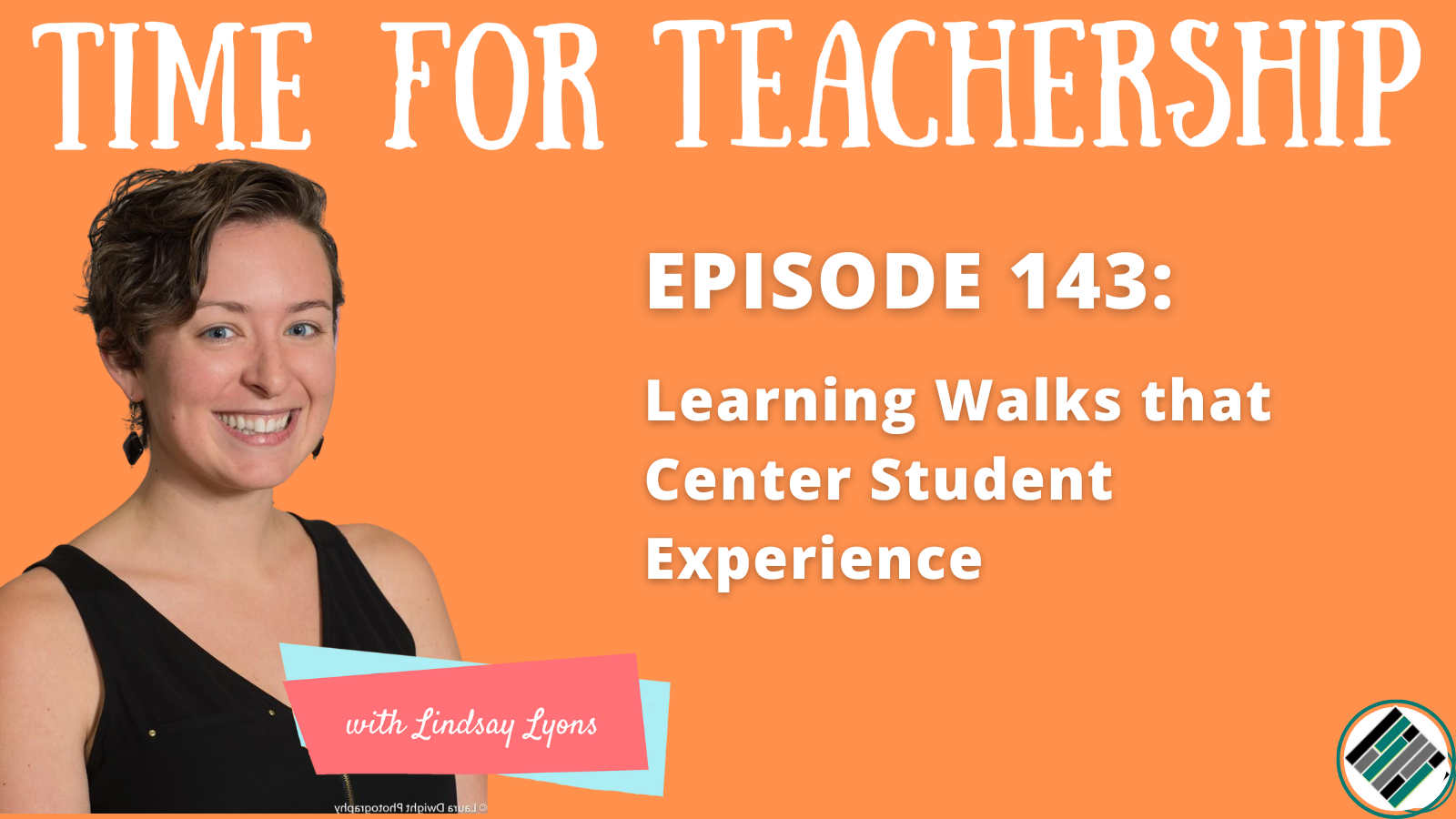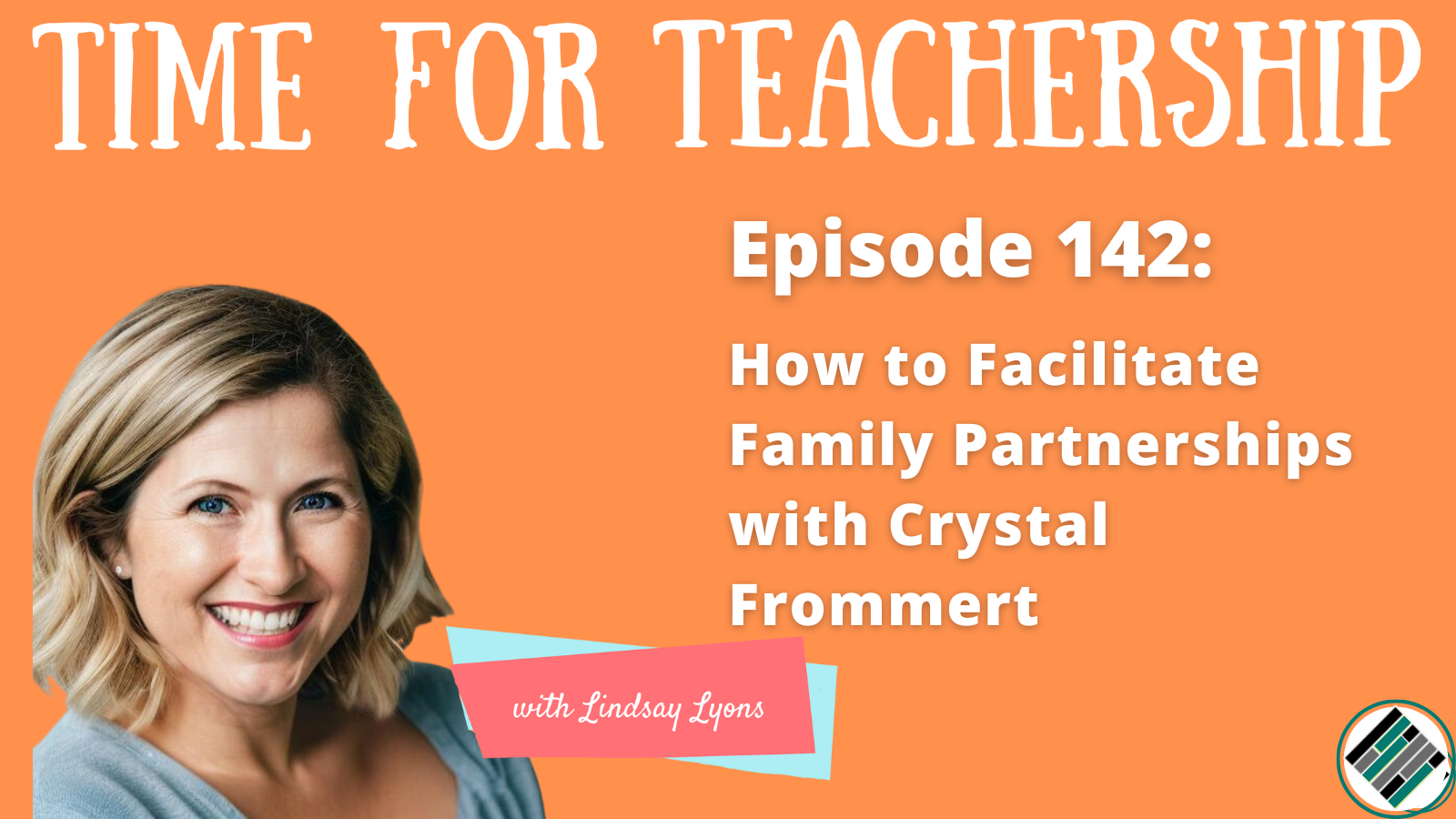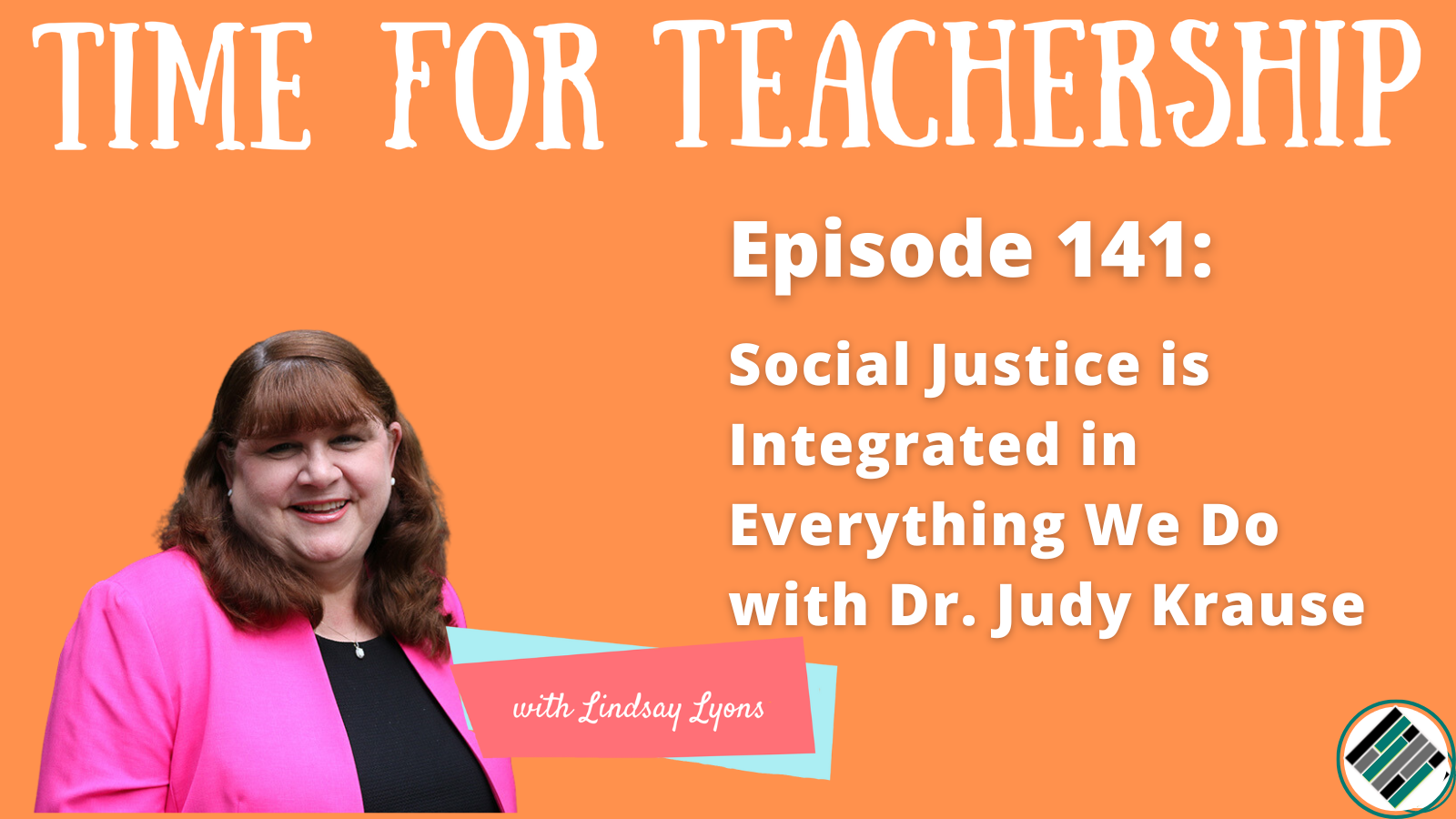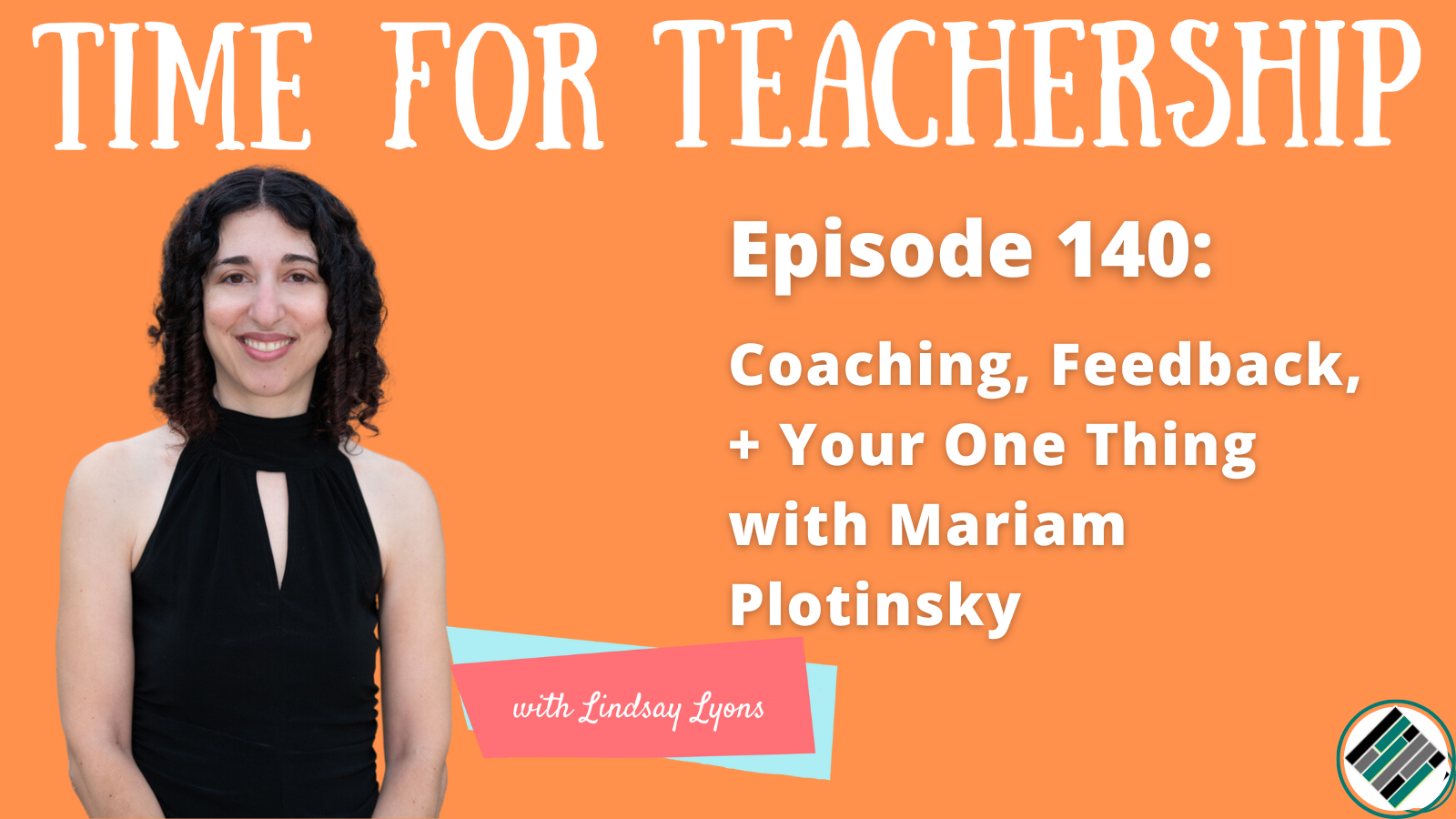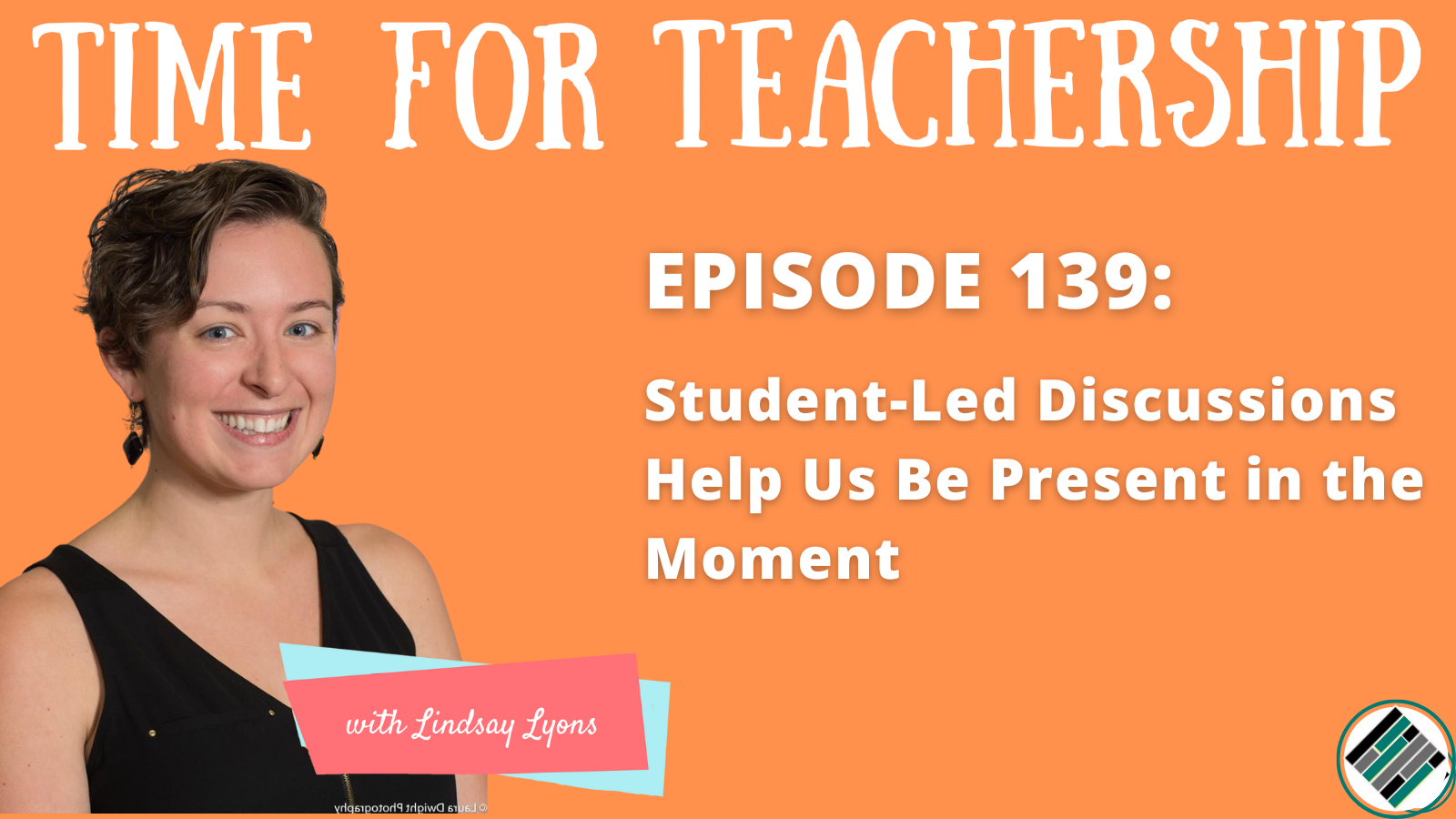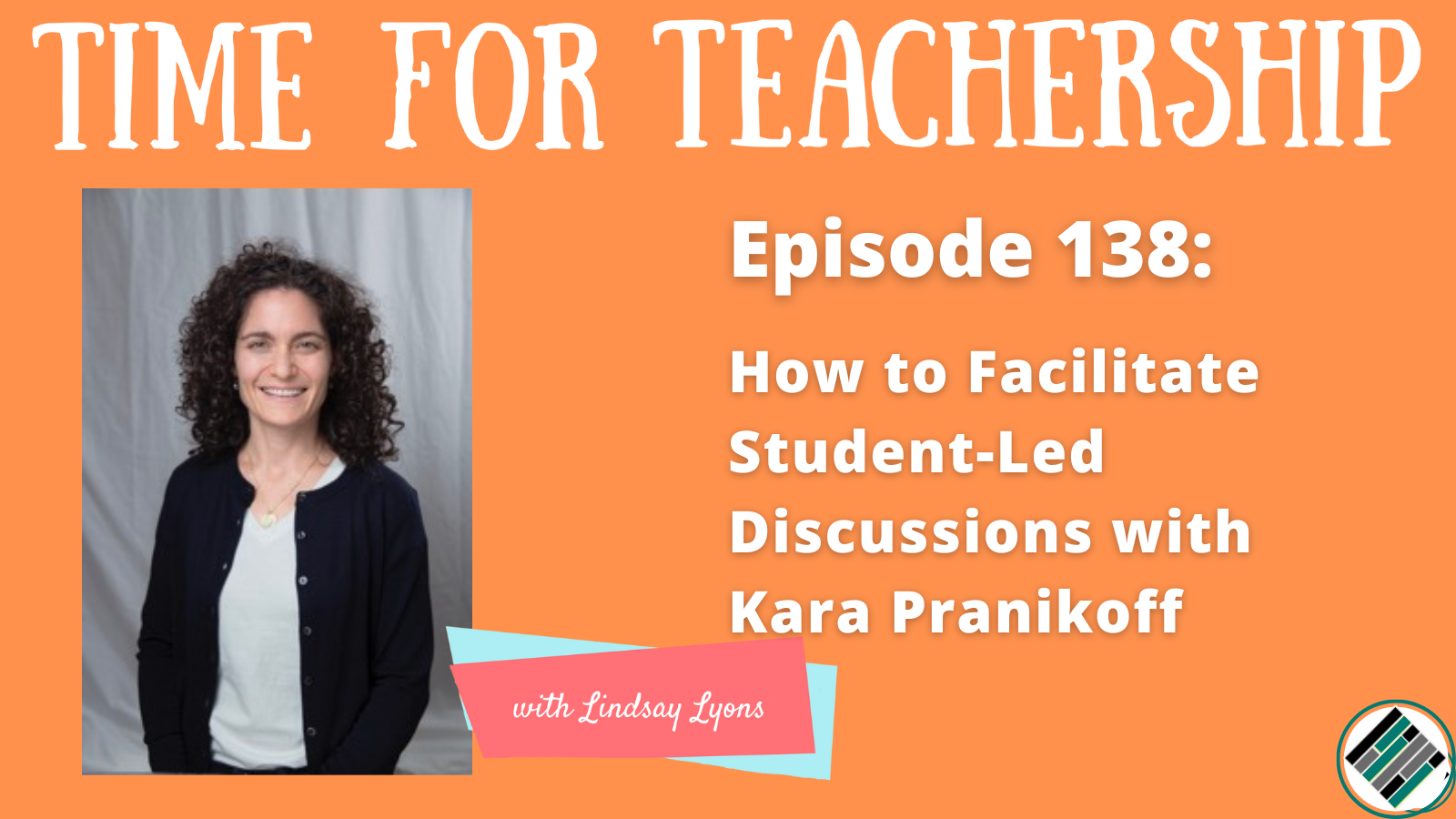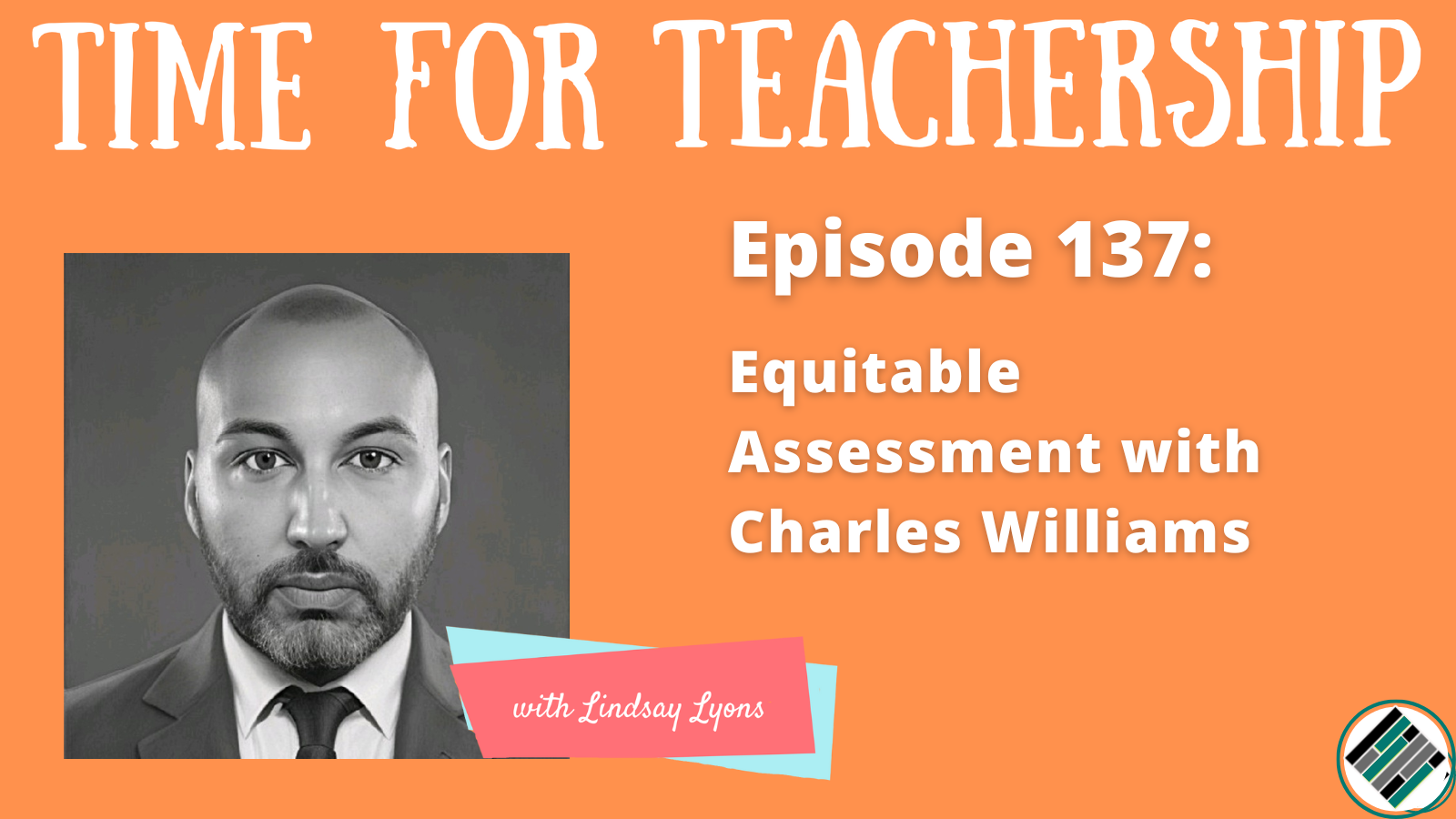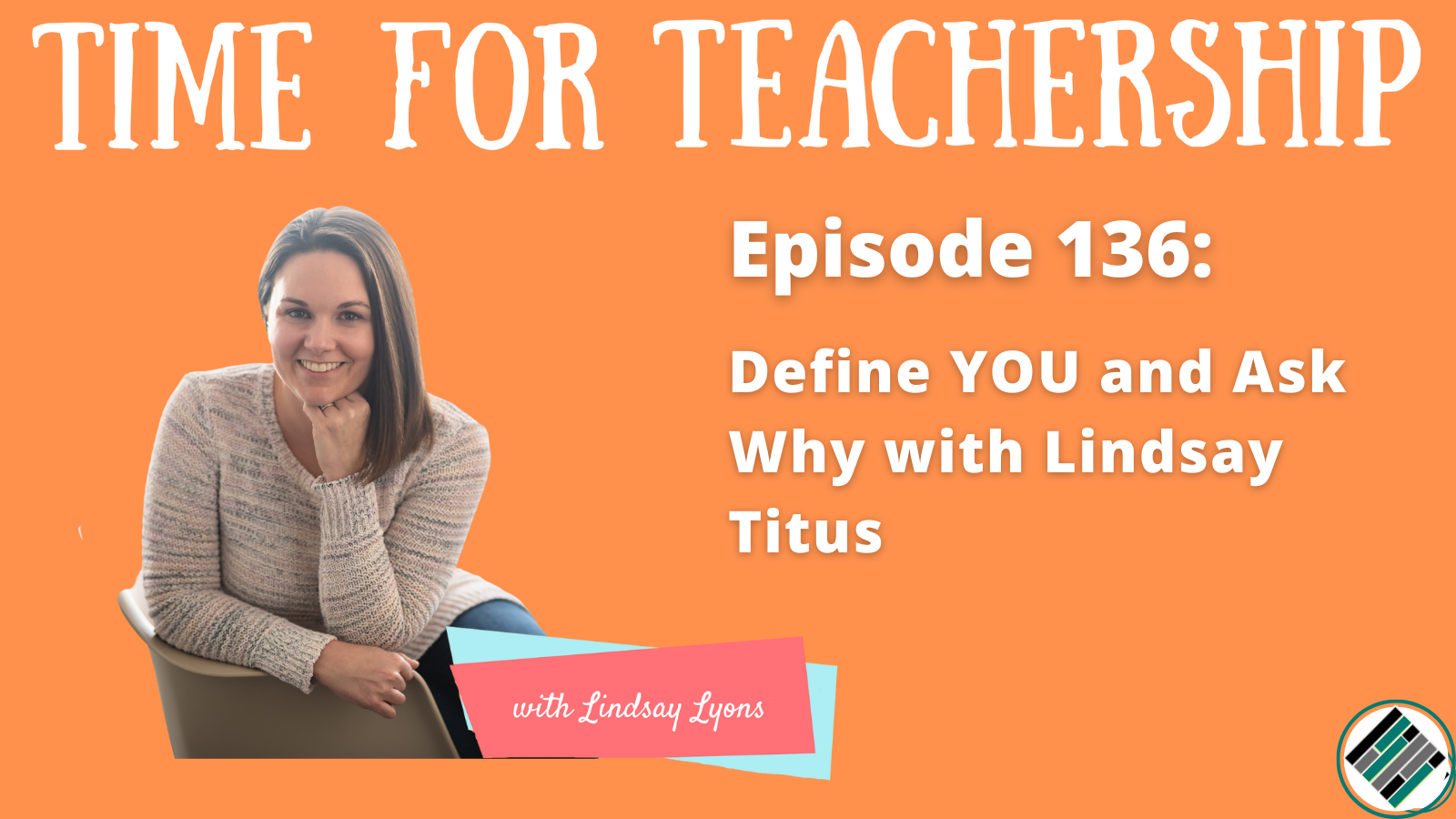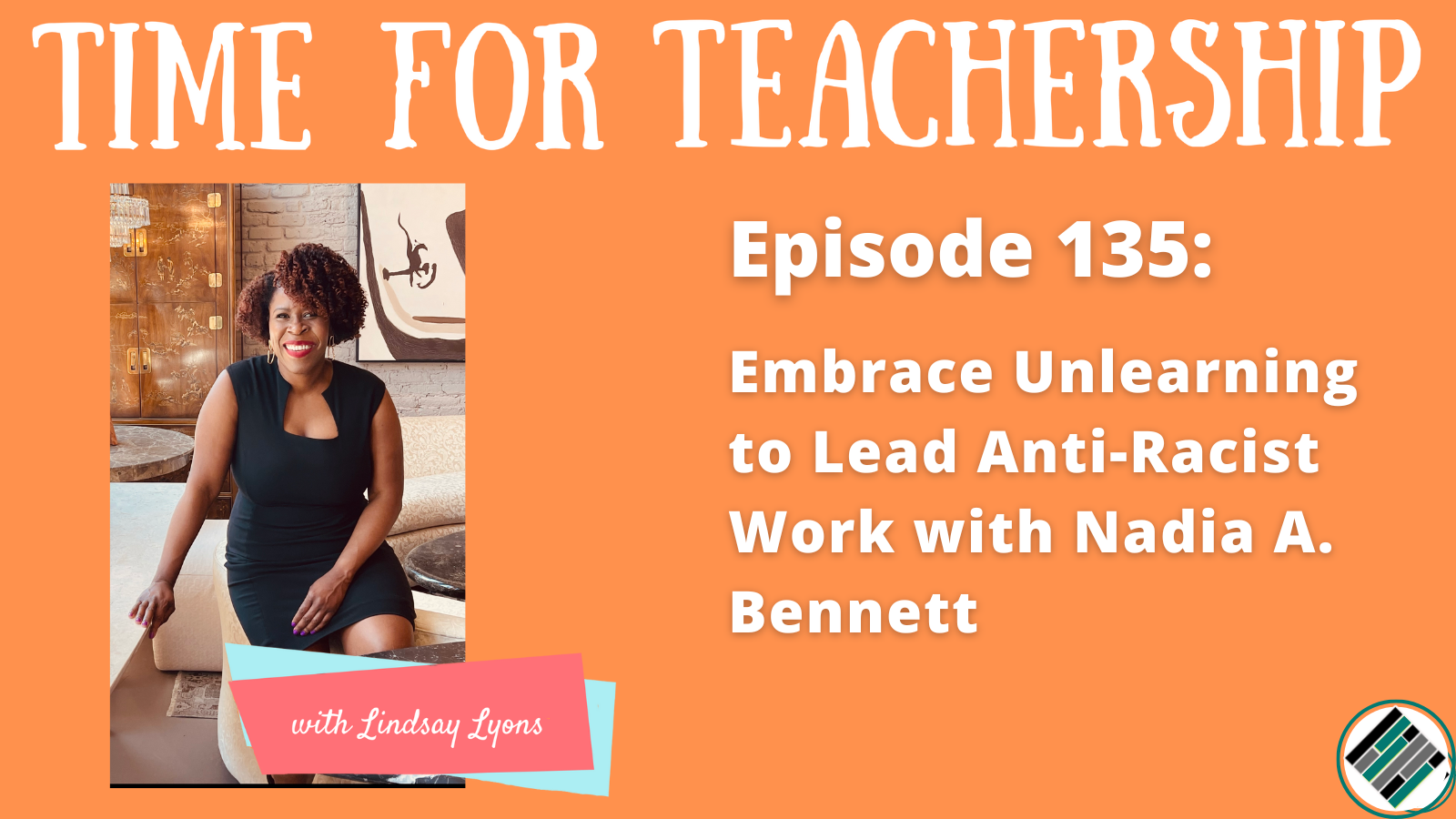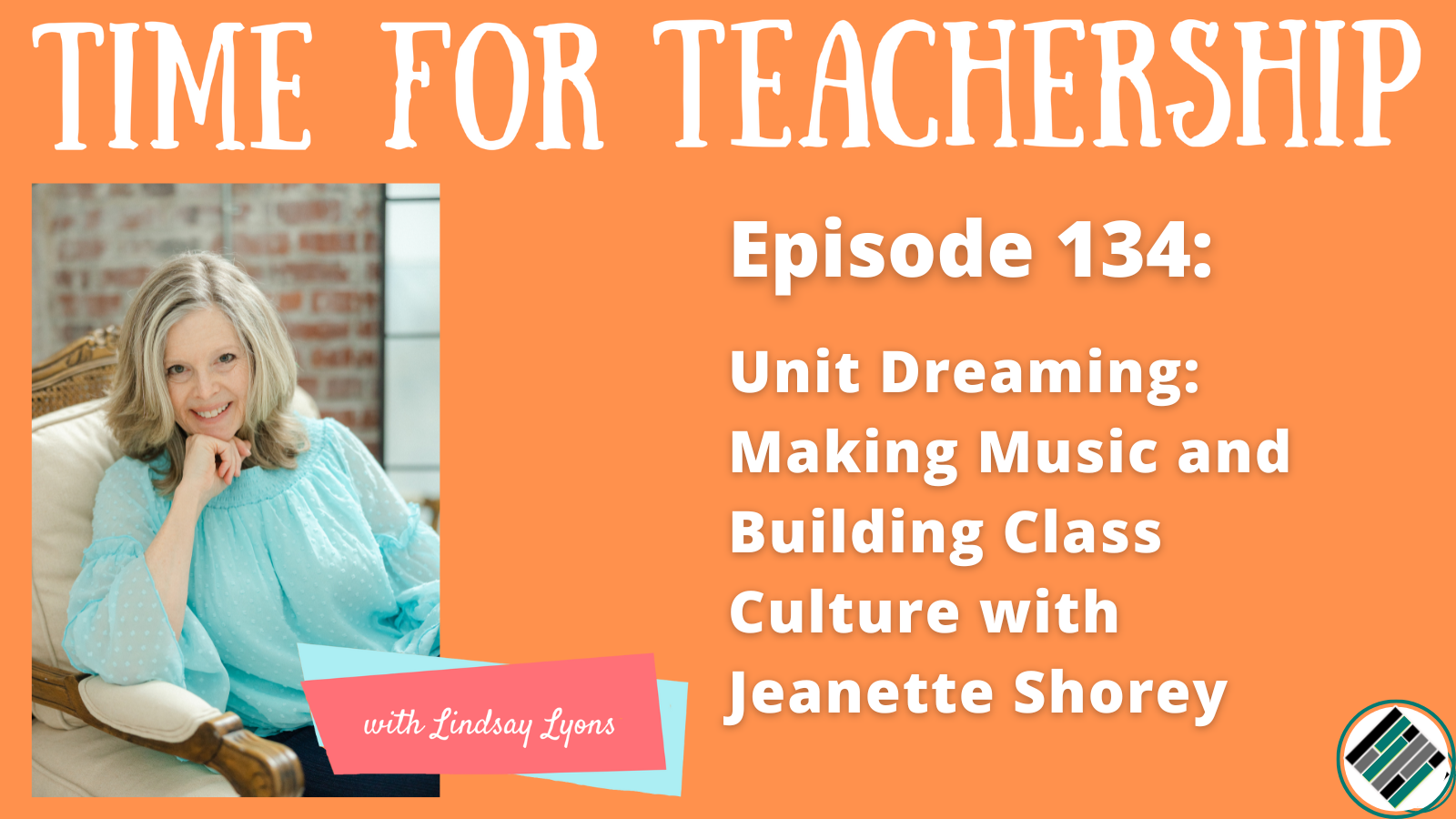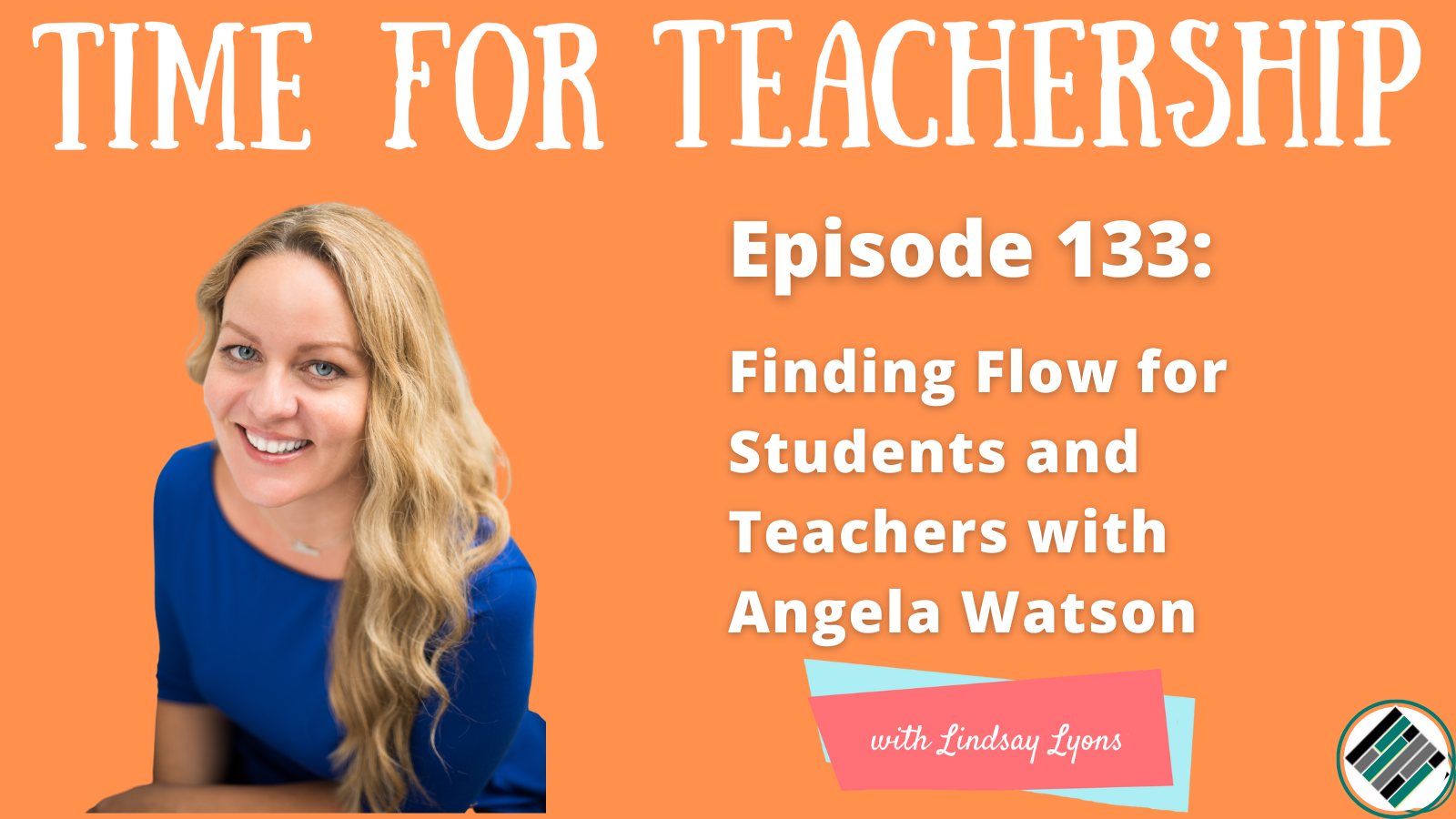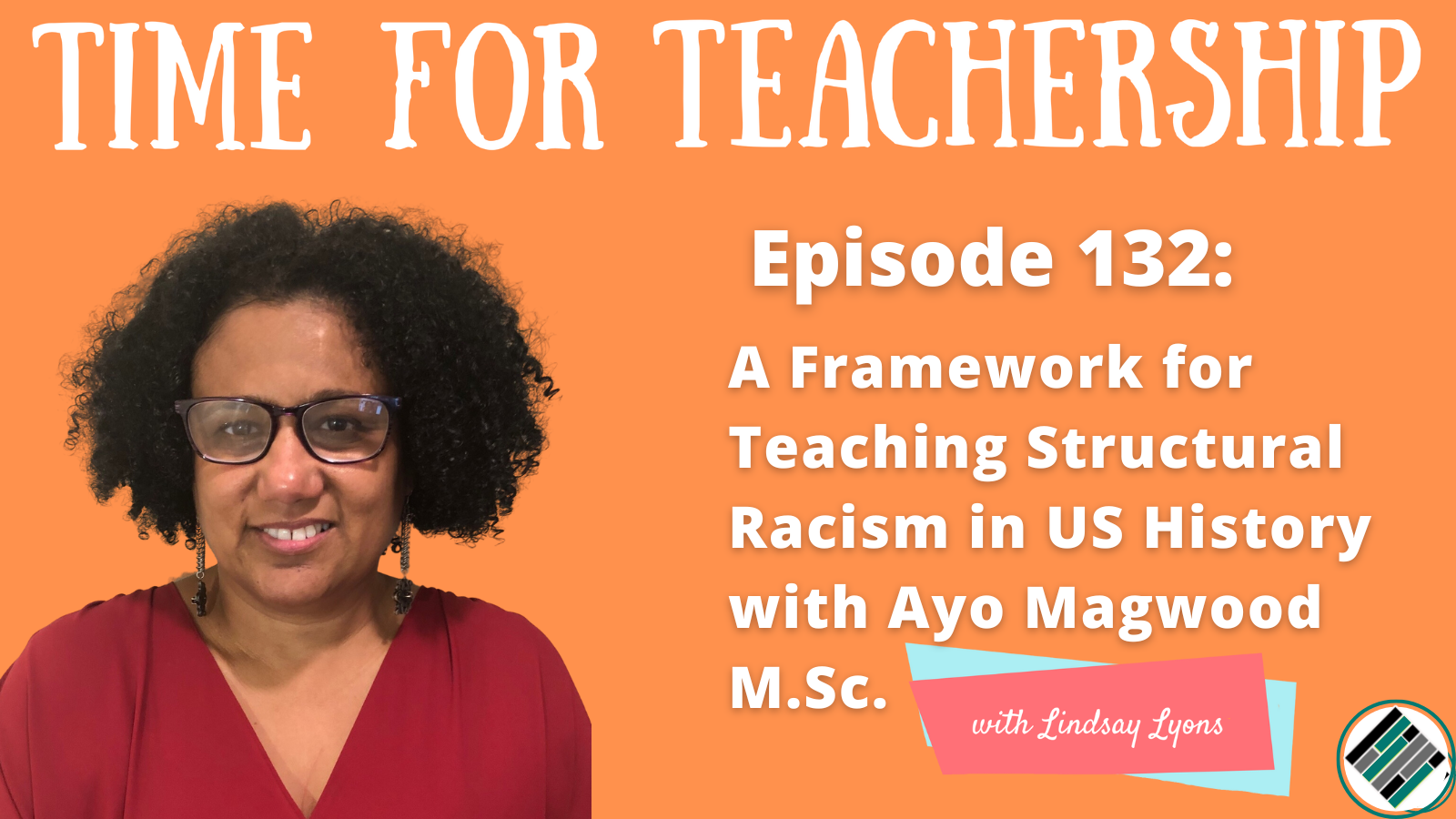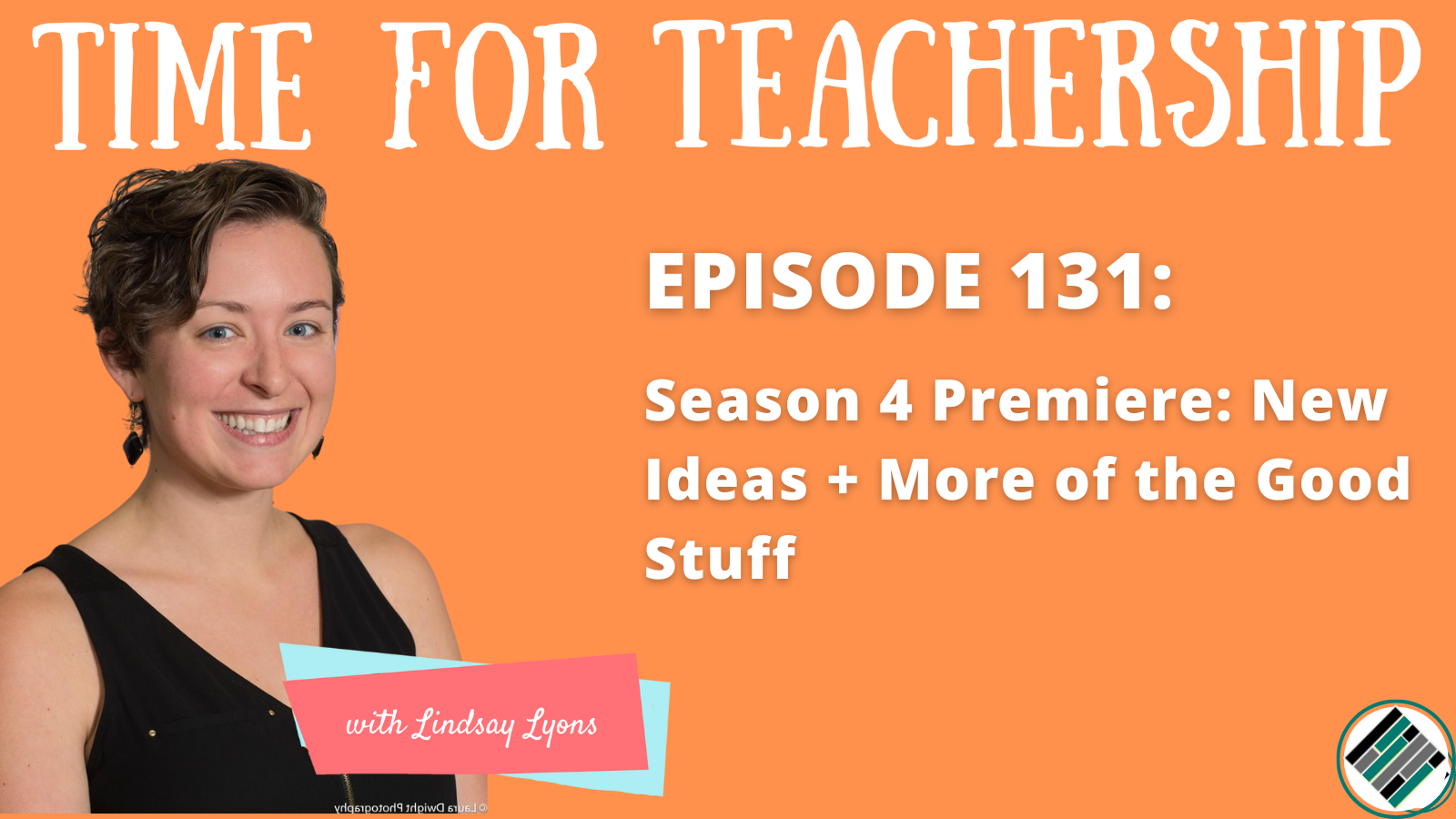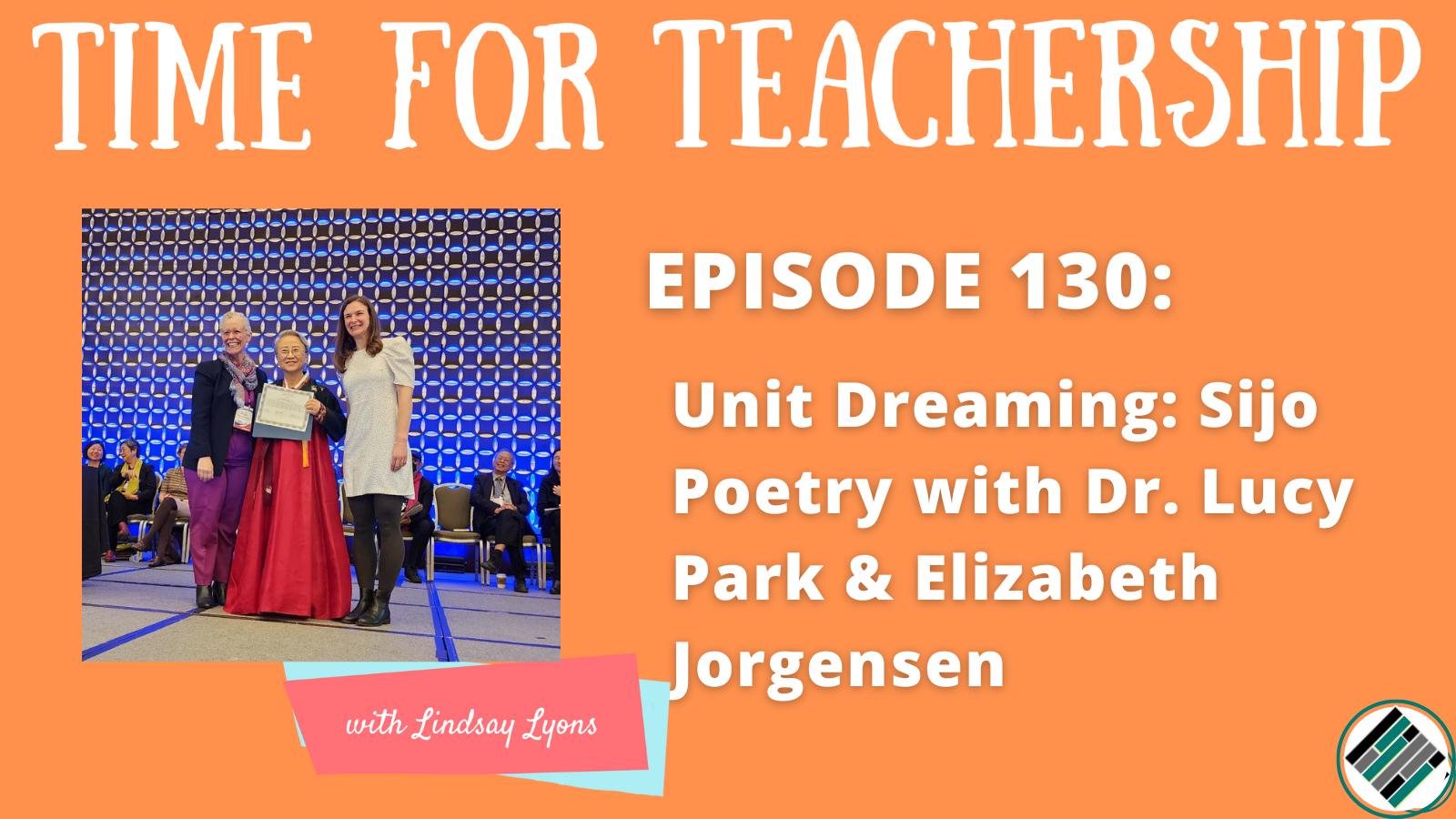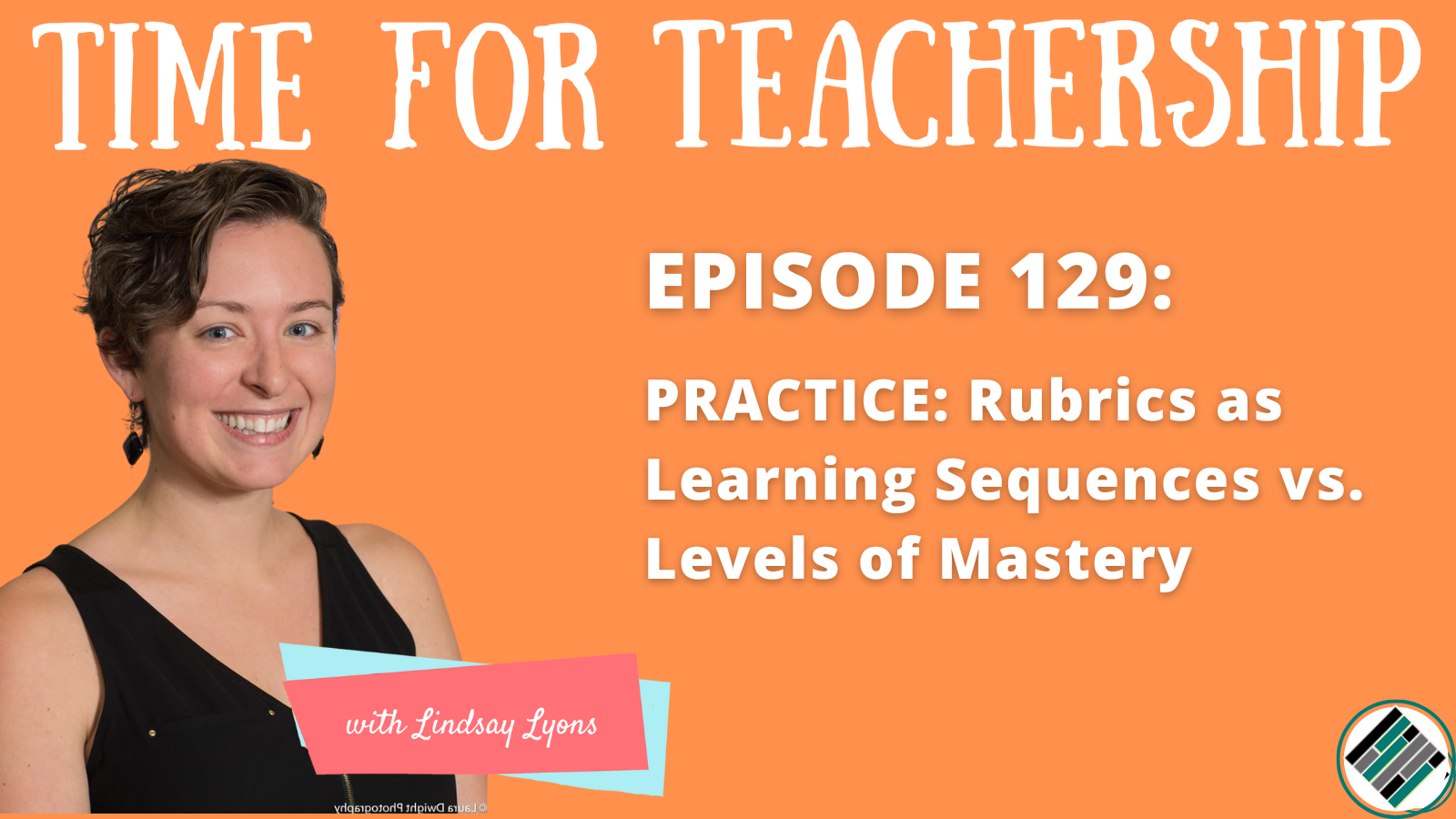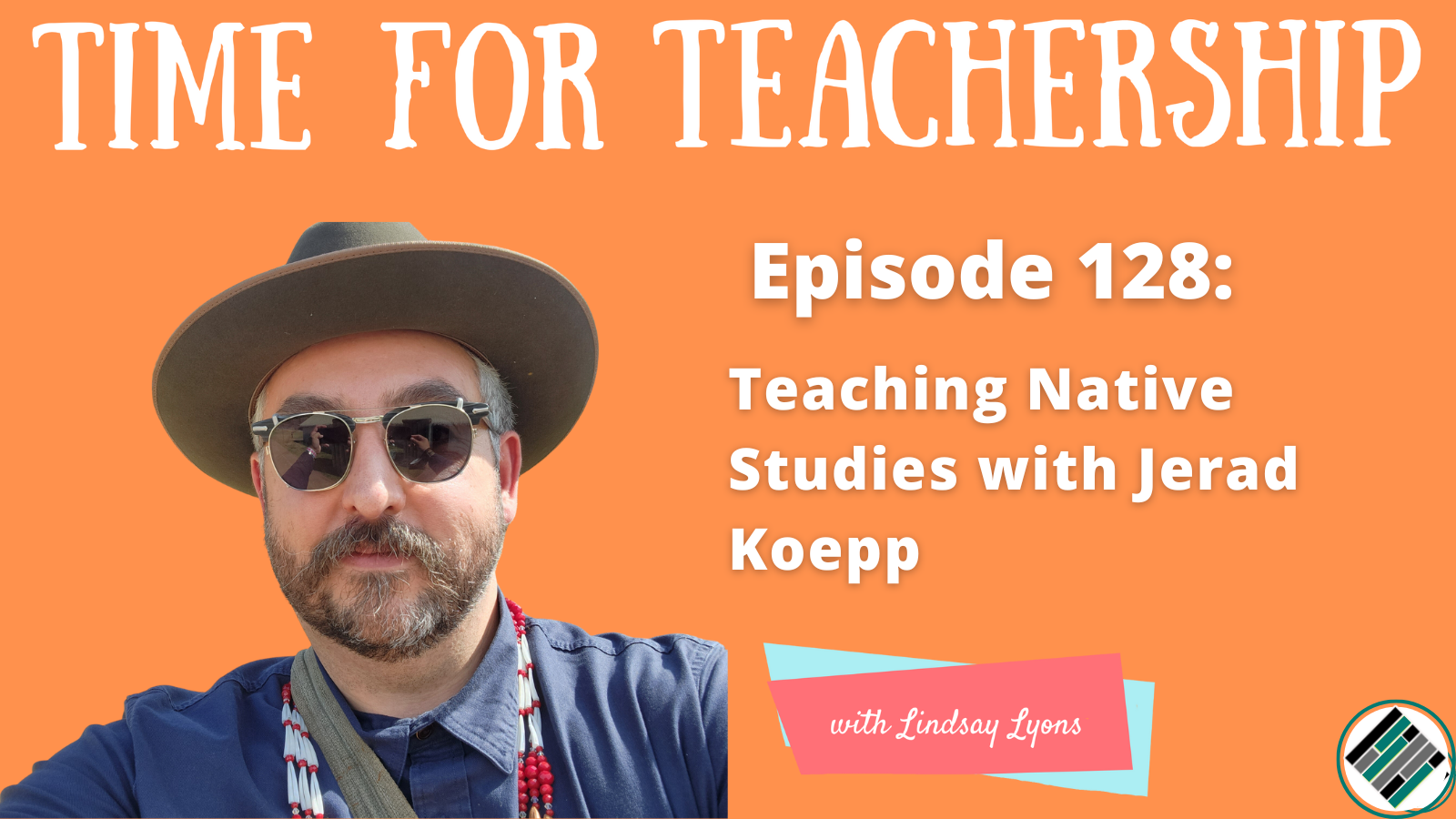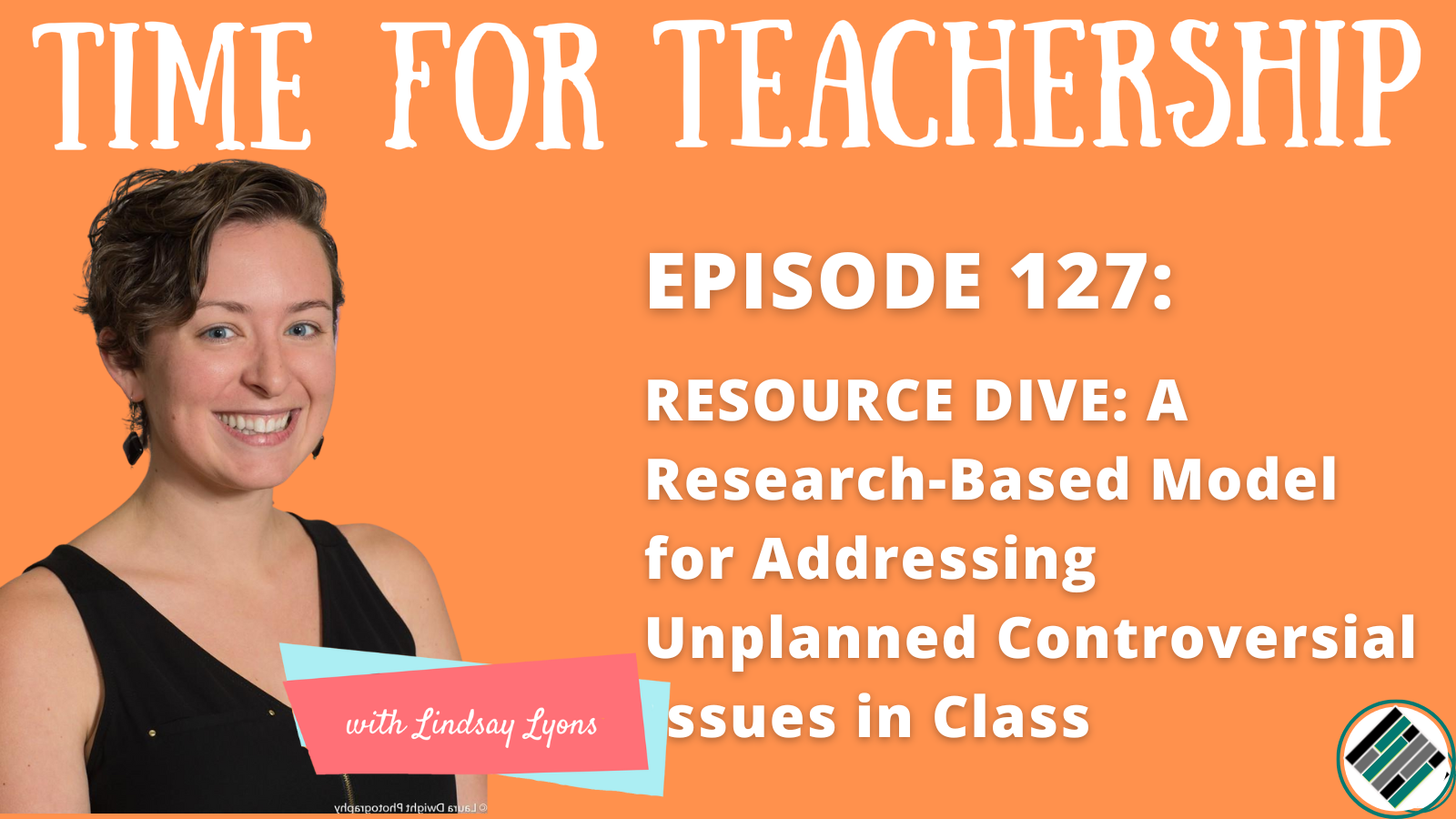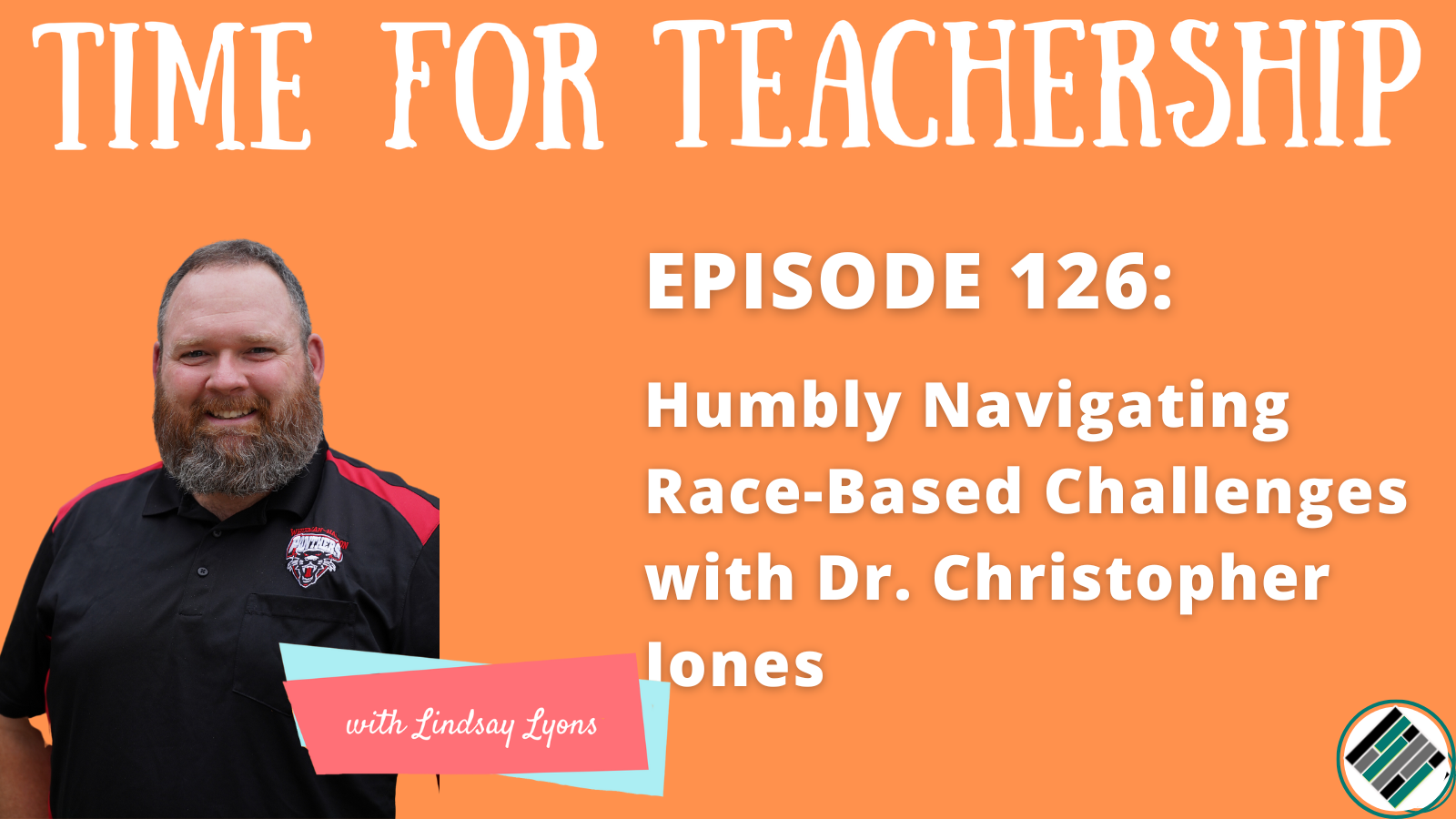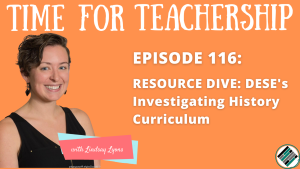
DESE is releasing their new (free) Investigating History curriculum for grades 5, 6, and 7 in the 2023-24 school year. In this episode, I walk you through what’s in the curriculum and how you can support your teachers to engage with the curriculum and prepare to teach it to their students in a relevant, personalized way.
Why I Like It and the Research It’s Based On:
It’s grounded in justice-centered research and frameworks.
The 4 Instructional Principles:
- Inquiry
- Affective Dimensions
- Current Events, Civic Engagement
- Cultural Competence and Sociopolitical Awareness
The 3 Pillars:
- 7 Practices of Social Science
- Content (supported an understanding of the world)
- Literacy: reading, writing, speaking, and listening
Content Covered in Each Grade:
*Note: This curriculum is constantly evolving based on feedback from students and teachers, so this is the outline as of this episode’s recording (March 27, 2023).
Grade 5:
- Unit 1: Early Colonization
- Unit 2: Revolution and Principles of US Government
- Unit 3: Growth of the Republic
- Unit 4: Civil War and Civil Rights for All
Grade 6:
- Unit 2: Human Origins
- Unit 2: TBD
- Unit 3: Sub-Saharan Africa
- Unit 4: The Americas
Grade 7:
- Unit 1: South and Central Asia
- Unit 2: East Asia
- Unit 3: TBD
- Unit 4: TBD
How to prepare teachers to engage with this curriculum and prepare to teach it?
Suggested outcomes for a professional learning experience:
- A system for preparing to teach Unit 1 of the Investigating History curriculum
- Your “why” for focusing on one of the 4 core principles of the IH framework
- A list of summative assessment “essentials” students will need to know/be able to do
- A “GPS” outline of the unit that identifies the most important content understanding, skill or activity, and source for each lesson.
- The materials you need to actually teach this unit with detailed attention to a focus inquiry routine (i.e., launch, investigate, put it together) and focus pursuit from Dr. Gholnecsar Muhammad’s HILL model (specifically: identity, criticality, joy).
Leading Curriculum Implementation Tip: Co-create ongoing structures of coaching support, success shares, and resource banks.
For reference: DESE’s Design Specifications document for the Investigating History curriculum.
To help you get started with preparing teachers to teach this curriculum, I’m sharing my Investigating History PD Agenda with you for free. And, if you’re looking for more details on the ideas in this blog post, listen to episode 116 of the Time for Teachership podcast. If you’re unable to listen or you prefer to read the full episode, you can find the transcript here.
Quotes:
- “The history and social science curriculum should engage students in contributing to and reimagining our democracy; the core of this concept is their ability to practice taking informed civic action (Levinson & Levine, 2013).” (as cited in DESE’s design specifications document)
- “We want to learn about the past, but we want to learn about it so that it can inform the present…What can we learn from the past to inform civic engagement currently? How do we take stock of the different strategies?”
- “I love any connection you can make and have students make to the decision-making structures of the school itself. Apply these same things we’re talking about in the curriculum about larger government structures to the government structure of the thing they experience daily—the thing that’s happening in their school.”

